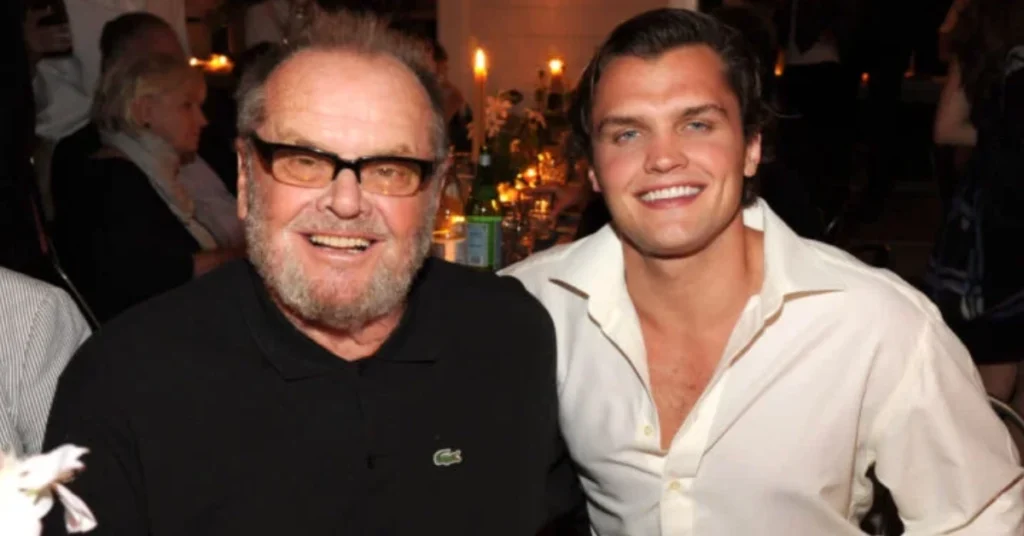Most celebrity children live their lives under constant scrutiny, forever defined by their famous parent’s shadow. But what happens when that parent publicly denies your existence while privately supporting your dreams?
Meet Caleb James Goddard—a name that carries the weight of Hollywood royalty yet remains deliberately absent from red carpets and tabloid headlines. Born into one of entertainment’s most complex family dynamics, he chose a different path entirely.
Origins & Family Dynamics
On September 26, 1970, in Los Angeles, Caleb James entered the world as the son of two accomplished actors: Jack Nicholson and Susan Anspach. Yet his story begins with contradiction.
While Nicholson publicly denied paternity, the truth painted a more nuanced picture. Susan Anspach’s husband, Mark Goddard, adopted Caleb, giving him the surname that would define his public identity. Behind closed doors, however, Nicholson privately acknowledged his son—a duality that would shape Caleb’s entire approach to life.
This wasn’t simply a case of abandonment or denial. The situation reflected the complicated realities of Hollywood relationships in the 1970s, where public image often conflicted with private truth.
Striving for Independence
Despite the family tensions, Caleb pursued education and career with determination. He attended Georgetown University, his studies quietly supported by Nicholson even as their relationship remained strained.
The entertainment industry called, but Caleb approached it on his own terms. His early credits included acting work in “The Slap Maxwell Story” and location management for “Guilty as Charged” in 1991. Rather than leveraging his father’s connections for starring roles, he chose behind-the-scenes work that built genuine expertise.
This strategic approach reflected something deeper—a desire to earn recognition through merit rather than lineage.
Stepping Out of the Spotlight
As Caleb matured, his priorities shifted toward privacy and family. He married Katerine Pouget and became father to two children, deliberately keeping them away from public attention.
This wasn’t retreat or defeat. Instead, it represented conscious choice—selecting meaningful relationships over celebrity status. While many celebrity offspring struggle with identity and purpose, Caleb found both through traditional values: marriage, parenthood, and professional achievement.
His decision challenges assumptions about what success looks like when you’re born into fame.
Navigating Legacy & Identity
The paternity denial that marked Caleb’s early years created lasting effects. Growing up with a famous father who wouldn’t publicly acknowledge him required developing unusual emotional resilience.
Yet this challenge became strength. Without the burden of living up to Jack Nicholson’s iconic status, Caleb discovered freedom to define himself. He moved into producing and writing—creative roles that utilize storytelling skills without demanding constant public visibility.
The private support from Nicholson, including help with Georgetown tuition, suggests their relationship evolved beyond public perception. Sometimes the most meaningful connections happen away from cameras and interviews.
Media Portrayal & Recent Coverage
Recent articles from July 2025 frame Caleb’s story through themes of quiet resilience and intentional privacy. Publications like Height Magazine and Four Magazine present him as someone who successfully navigated celebrity lineage without losing personal autonomy.
These profiles emphasize his producer and writer credentials rather than focusing solely on his famous father. The coverage suggests growing respect for celebrity children who choose independence over inherited fame.
Modern media treatment reflects changing attitudes toward privacy and self-determination in the digital age.
Broader Significance
Caleb’s journey illuminates broader questions about identity, legacy, and public versus private life. His story demonstrates that celebrity offspring can forge meaningful paths without exploiting family connections.
In an era of social media oversharing and reality TV culture, his commitment to privacy feels almost revolutionary. He proves that stepping away from spotlight doesn’t mean stepping away from success or fulfillment.
His choices also highlight the complexity of family relationships in Hollywood, where public image and private reality often diverge dramatically.
Conclusion
Caleb James Goddard’s life story reads like quiet triumph over complex circumstances. Born into Hollywood royalty but raised with uncertainty, he created stability through education, career development, and family commitment.
His path offers lessons about authenticity, resilience, and the courage to define success personally rather than publicly. While Jack Nicholson’s legacy dominates cinema history, Caleb’s legacy might prove equally valuable—showing how to live meaningfully without constant validation.
In choosing privacy over fame, independence over inheritance, he crafted something rare in celebrity culture: genuine autonomy.
For more celebrity family stories and Hollywood insights, explore our latest features at Say What Magazine.

